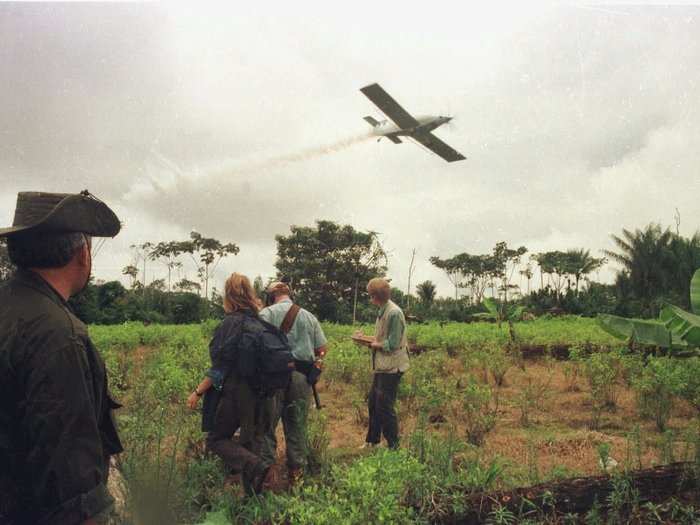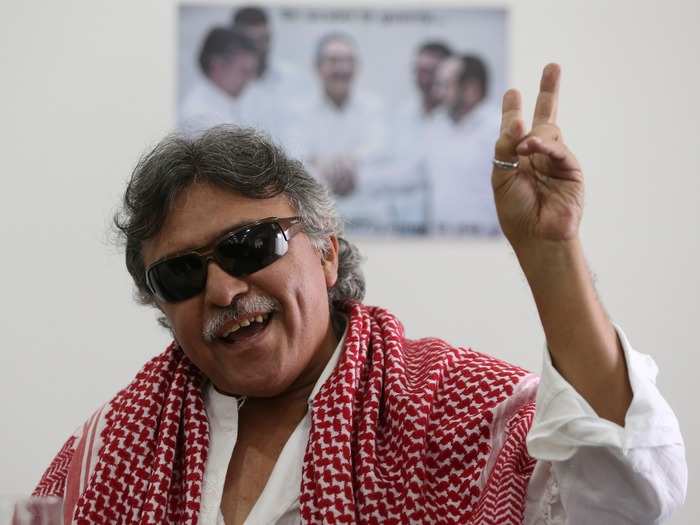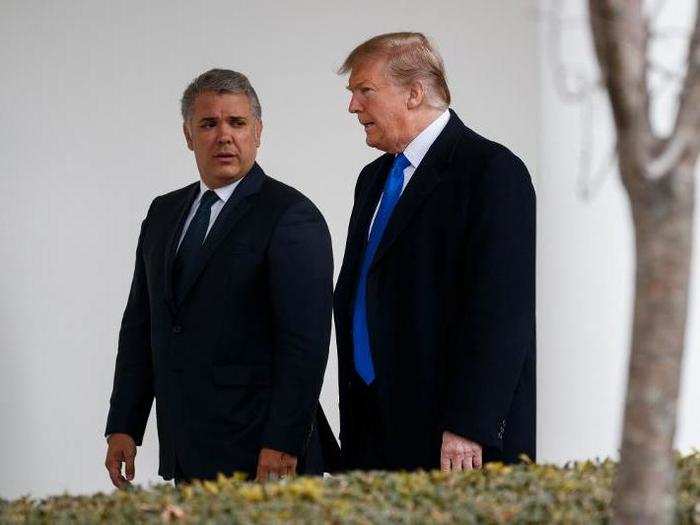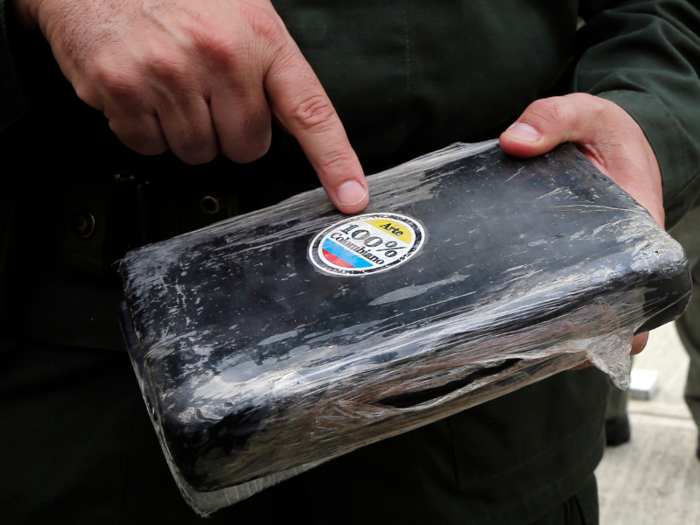- Home
- slideshows
- miscellaneous
- 4 reasons Trump's frustration about cocaine may make him pick a fight with one of the US's best friends
4 reasons Trump's frustration about cocaine may make him pick a fight with one of the US's best friends
Drug numbers haven’t significantly declined

Colombia cannot widely use glyphosate

Among the reasons credited for Colombia's surge in coca production is a 2015 policy decision by former President Juan Manuel Santos, in office from 2010 to 2018, to suspend aerial eradication with chemical herbicide glyphosate — also sold commercially as Roundup.
The Colombian government insists that this decision resulted in the sudden rise in coca production between 2015 and 2018 and is urging to reinstate the policy. However, Santos did not suspend aerial fumigation on a whim. In 2015, the World Health Organization's International Center for Cancer Research said glyphosate is considered a "probable carcinogen" — an opinion with which the US Environmental Protection Agency disagrees.
In 2017, Colombia's Constitutional Court ruled that the use of glyphosate was permissible but only under certain conditions, the most strenuous of which asked the government to "present evidence to the Court that the herbicide will not cause harm to health."
This is something currently in dispute not only in Colombia, but in the US, where Monsanto, the manufacturer of Roundup, has been ordered to pay more than $2 billion in damages to people who claim that the company did not do enough to warn about the health risks posed by the use of the chemical herbicide.
The Constitutional Court ruled Thursday on the glyphosate matter, upholding their 2017 restrictions on the use of the chemical and delivering a blow to the Duque administration, as it can no longer employ what it touts as the most useful weapon to quickly reduce crop numbers.
This will give further arguments to Trump and US drug-enforcement authorities to suggest that the government of Colombia, and especially its courts, are not fully cooperating on the anti-narcotics front.
The US is frustrated over extradition

The Special Jurisdiction for Peace, the country's transitional justice tribunal, ruled in May that it would not approve the extradition to the US of former FARC leader Seuxis Paucias Hernández, otherwise known as Jesús Santrich, on charges of conspiring to traffic drugs.
Despite slam-dunk evidence — including a video taken by undercover agents — Santrich's extradition was not green-lit by authorities (there are complex legal reasons, described here) and instead he was let go.
The US State Department expressed its disagreement over the Court's decision to release Santrich, which became yet another example of how Colombia was uncooperative with the US in the fight against drug trafficking and the groups allegedly behind it.
In a disastrous turn of events, Santrich later disappeared from his security detail, and his whereabouts are currently unknown. It is suspected that he may be in Venezuela, but ultimately Colombian authorities blinked.
Trump is Trump

Finally, Trump's temperament is a factor to consider.
Trump has been adamant on expressing his disdain with allies in the form of threats and direct action. He has issued ultimatums to NATO over defense spending, threatened to slap tariffs on Mexican goods over immigration, and the list goes on.
The decertification would be a hard blow to confidence in the Duque administration and would mean a cut to the funds that Colombia receives from the US, damaging its fiscal situation.
The threat of additional tariffs on Colombian products could have a destabilizing effect on trade and the economy.
Where do we go from here?

Decertifying Colombia would be a punch in the gut to the most reliable ally the US has in the Western Hemisphere — an ally crucial to supporting US strategy against embattled Venezuelan President Nicolás Maduro.
If Trump can manage to scare Duque into pushing further against the courts and the peace agreement to accommodate US interests on the war on drugs, Trump can claim a win.
It would not be surprising, therefore, if Trump uses "decertification" as a strategic threat on Colombia, only to backtrack a few days or a few weeks later.
Sergio Guzmán is the director of Colombia Risk Analysis, a political-risk consulting firm based in Bogotá. Follow him on twitter @SergioGuzmanE and @ColombiaRisk
Popular Right Now
Popular Keywords
Advertisement